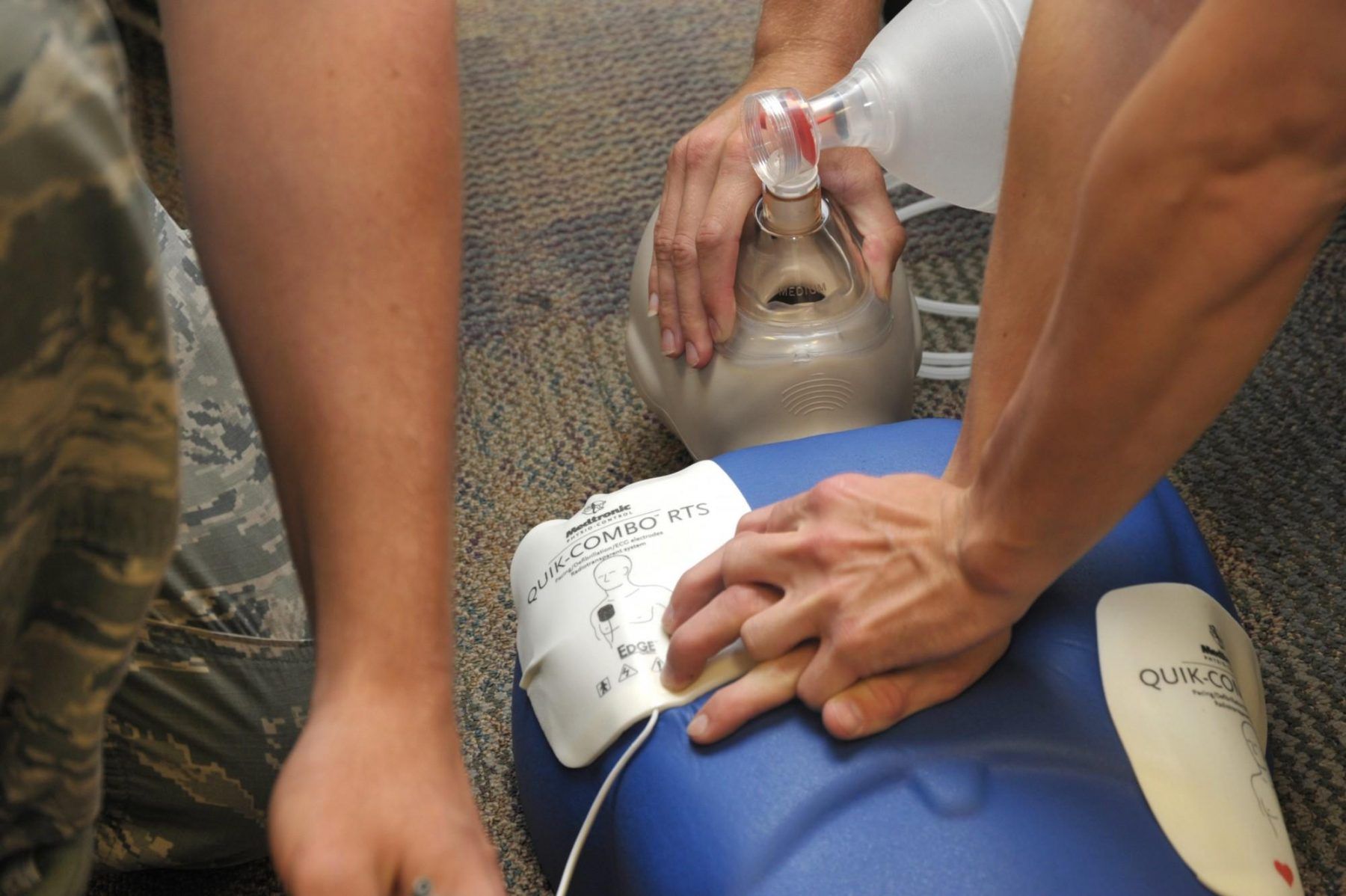Prepare to test your knowledge of life-saving techniques with our BLS Practice Quiz. Each question is crafted to challenge your understanding of Basic Life Support principles, ensuring you are well-prepared to respond in emergency situations. Dive in and see how well you can handle these critical scenarios!
We recommend that you do not leave the page that you are taking this quiz in. Stay honest 🙂
BLS Practice Quiz Questions Overview
1. What is the recommended rate for performing chest compressions during CPR?
60-80 compressions per minute
80-100 compressions per minute
100-120 compressions per minute
120-140 compressions per minute
2. What is the first step in the BLS sequence for adults?
Start chest compressions
Give rescue breaths
Check for responsiveness
Call for help
3. How deep should chest compressions be for an adult during CPR?
At least 1 inch
At least 2 inches
At least 3 inches
At least 4 inches
4. What ratio of chest compressions to rescue breaths is recommended for adult CPR?
15:2
30:2
50:2
100:2
5. When using an AED, what is the first step you should take?
Press the shock button
Attach the pads to the chest
Turn on the AED
Check for a pulse
6. In BLS, what does the acronym CAB stand for?
Circulation, Airway, Breathing
Compression, Airway, Breathing
Compression, Airway, Blood flow
Circulation, Airway, Blood flow
7. How often should you switch chest compressors during CPR to avoid fatigue?
Every 1 minute
Every 2 minutes
Every 5 minutes
Every 10 minutes
8. What is the recommended compression-to-ventilation ratio for a single rescuer performing CPR on an infant?
15:2
30:2
50:2
100:2
9. What should you do if you witness a person suddenly collapse and they are unresponsive?
Start chest compressions immediately
Call for emergency medical services
Give rescue breaths
Check for a medical alert bracelet
10. Which of the following is a sign that an adult needs CPR?
They are breathing normally
They are responsive
They have a pulse
They are not breathing and are unresponsive
We recommend that you do not leave the page that you are taking this quiz in. Stay honest 🙂
Can Your Friends Do Better Than You in This Quiz?
Share this quiz with your friends and compare results.
Was this page helpful?
More Popular Health & Wellness Quizzes:
-
Bipolar or ADHD Quiz
-
Sepsis Quiz
-
Medical Terminology Quiz
-
Puberty Quiz
-
Body Regions Quiz
-
Sexual Harassment Quiz












